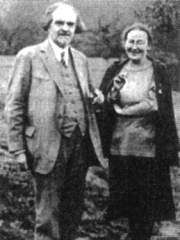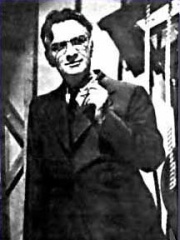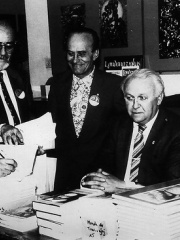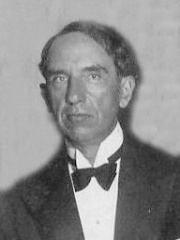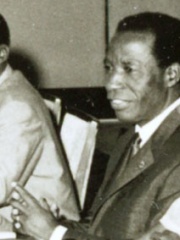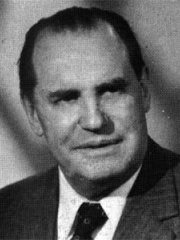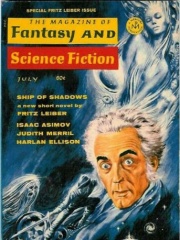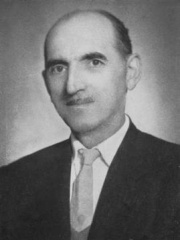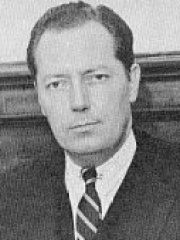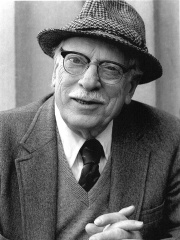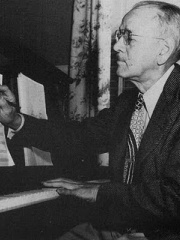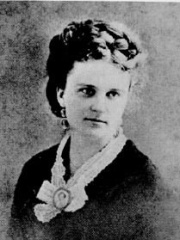Escritor
Alex Haley
1921 - 1992
PT.WIKIPEDIA PAGE VIEWS (PV)

 Alex Haley
Alex Haley
Sua biografia está disponível em 43 idiomas na Wikipédia (aumento em relação a 41 em 2024). Alex Haley é o 2457º escritor mais popular (subiu do 2685º em 2024), a 3533ª biografia mais popular dos Estados Unidos (caiu do 3393ª em 2019) e o 280º escritor mais popular dos Estados Unidos.
Memorability Metrics
Page views of Alex Haley by language
Among Escritors
Among escritors, Alex Haley ranks 2,457 out of 7,302. Before him are Maria Skobtsova, Pavel Kohout, Tang Xianzu, James M. Cain, Jean-Jacques Barthélemy, and William Auld. After him are Caesarius of Heisterbach, Apollonius Dyscolus, Dares Phrygius, Jules Supervielle, Juan de Valdés, and Ron Kovic.
Most Popular Escritors in Wikipedia
Go to all RankingsMaria Skobtsova
1891 - 1945
HPI: 61.92
Rank: 2,451
Pavel Kohout
1928 - Present
HPI: 61.92
Rank: 2,452
Tang Xianzu
1550 - 1616
HPI: 61.92
Rank: 2,453
James M. Cain
1892 - 1977
HPI: 61.91
Rank: 2,454
Jean-Jacques Barthélemy
1716 - 1795
HPI: 61.91
Rank: 2,455
William Auld
1924 - 2006
HPI: 61.90
Rank: 2,456
Alex Haley
1921 - 1992
HPI: 61.90
Rank: 2,457
Caesarius of Heisterbach
1180 - 1240
HPI: 61.90
Rank: 2,458
Apollonius Dyscolus
200 - 200
HPI: 61.90
Rank: 2,459
Dares Phrygius
450 - 100
HPI: 61.90
Rank: 2,460
Jules Supervielle
1884 - 1960
HPI: 61.89
Rank: 2,461
Juan de Valdés
1505 - 1541
HPI: 61.89
Rank: 2,462
Ron Kovic
1946 - Present
HPI: 61.89
Rank: 2,463
Contemporaries
Among people born in 1921, Alex Haley ranks 154. Before him are Alphonse Massamba-Débat, Manitas de Plata, Louis Lachenal, Eunice Kennedy Shriver, Malcolm Arnold, and Sixto Durán Ballén. After him are Esther Williams, Fernando Fernán Gómez, Deanna Durbin, Eugenio Coșeriu, Georges Wilson, and Lionel Terray. Among people deceased in 1992, Alex Haley ranks 106. Before him are Néstor Almendros, Wang Hongwen, Jean Dieudonné, Allen Newell, Abu al-Qasim al-Khoei, and Fritz Leiber. After him are Tevfik Esenç, Jim Garrison, Arthur Cronquist, František Tomášek, Franco Cristaldi, and Lenny Montana.
Others Born in 1921
Go to all RankingsAlphonse Massamba-Débat
POLITICIAN
1921 - 1977
HPI: 62.35
Rank: 148
Manitas de Plata
MUSICIAN
1921 - 2014
HPI: 62.34
Rank: 149
Louis Lachenal
POLITICIAN
1921 - 1955
HPI: 62.29
Rank: 150
Eunice Kennedy Shriver
POLITICIAN
1921 - 2009
HPI: 62.22
Rank: 151
Malcolm Arnold
COMPOSER
1921 - 2006
HPI: 62.04
Rank: 152
Sixto Durán Ballén
ARCHITECT
1921 - 2016
HPI: 61.95
Rank: 153
Alex Haley
WRITER
1921 - 1992
HPI: 61.90
Rank: 154
Esther Williams
ACTOR
1921 - 2013
HPI: 61.83
Rank: 155
Fernando Fernán Gómez
ACTOR
1921 - 2007
HPI: 61.82
Rank: 156
Deanna Durbin
ACTOR
1921 - 2013
HPI: 61.75
Rank: 157
Eugenio Coșeriu
LINGUIST
1921 - 2002
HPI: 61.62
Rank: 158
Georges Wilson
ACTOR
1921 - 2010
HPI: 61.55
Rank: 159
Lionel Terray
MOUNTAINEER
1921 - 1965
HPI: 61.54
Rank: 160
Others Deceased in 1992
Go to all RankingsNéstor Almendros
FILM DIRECTOR
1930 - 1992
HPI: 62.40
Rank: 100
Wang Hongwen
POLITICIAN
1935 - 1992
HPI: 62.40
Rank: 101
Jean Dieudonné
MATHEMATICIAN
1906 - 1992
HPI: 62.12
Rank: 102
Allen Newell
COMPUTER SCIENTIST
1927 - 1992
HPI: 62.11
Rank: 103
Abu al-Qasim al-Khoei
SOCIAL ACTIVIST
1899 - 1992
HPI: 61.98
Rank: 104
Fritz Leiber
WRITER
1910 - 1992
HPI: 61.94
Rank: 105
Alex Haley
WRITER
1921 - 1992
HPI: 61.90
Rank: 106
Tevfik Esenç
POLITICIAN
1904 - 1992
HPI: 61.65
Rank: 107
Jim Garrison
POLITICIAN
1921 - 1992
HPI: 61.36
Rank: 108
Arthur Cronquist
BIOLOGIST
1919 - 1992
HPI: 61.35
Rank: 109
František Tomášek
PHILOSOPHER
1899 - 1992
HPI: 61.32
Rank: 110
Franco Cristaldi
PRODUCER
1924 - 1992
HPI: 61.27
Rank: 111
Lenny Montana
ACTOR
1926 - 1992
HPI: 61.25
Rank: 112
In Estados Unidos
Among people born in Estados Unidos, Alex Haley ranks 3,533 out of NaN. Before him are James M. Cain (1892), Mitchell Feigenbaum (1944), Carla Bley (1936), Lisa Edelstein (1966), Joe Rosenthal (1911), and Stephen Paddock (1953). After him are Carl W. Stalling (1891), Basil Poledouris (1945), Ron Kovic (1946), William Hoyt (1875), Richard Kuklinski (1935), and Kelly Bishop (1944).
Others born in Estados Unidos
Go to all RankingsJames M. Cain
WRITER
1892 - 1977
HPI: 61.91
Rank: 3,527
Mitchell Feigenbaum
MATHEMATICIAN
1944 - 2019
HPI: 61.91
Rank: 3,528
Carla Bley
MUSICIAN
1936 - 2023
HPI: 61.91
Rank: 3,529
Lisa Edelstein
ACTOR
1966 - Present
HPI: 61.91
Rank: 3,530
Joe Rosenthal
JOURNALIST
1911 - 2006
HPI: 61.90
Rank: 3,531
Stephen Paddock
EXTREMIST
1953 - 2017
HPI: 61.90
Rank: 3,532
Alex Haley
WRITER
1921 - 1992
HPI: 61.90
Rank: 3,533
Carl W. Stalling
MUSICIAN
1891 - 1972
HPI: 61.90
Rank: 3,534
Basil Poledouris
COMPOSER
1945 - 2006
HPI: 61.89
Rank: 3,535
Ron Kovic
WRITER
1946 - Present
HPI: 61.89
Rank: 3,536
William Hoyt
ATHLETE
1875 - 1954
HPI: 61.89
Rank: 3,537
Richard Kuklinski
MAFIOSO
1935 - 2006
HPI: 61.89
Rank: 3,538
Kelly Bishop
ACTOR
1944 - Present
HPI: 61.88
Rank: 3,539
Among Escritors In Estados Unidos
Among escritors born in Estados Unidos, Alex Haley ranks 280. Before him are Djuna Barnes (1892), Dorothy Parker (1893), Henry Louis Gates Jr. (1950), Theodore Sturgeon (1918), Fritz Leiber (1910), and James M. Cain (1892). After him are Ron Kovic (1946), Forrest J Ackerman (1916), Vonda N. McIntyre (1948), Eben Alexander (1953), Kate Chopin (1850), and Gardner Fox (1911).
Djuna Barnes
1892 - 1982
HPI: 62.09
Rank: 274
Dorothy Parker
1893 - 1967
HPI: 62.08
Rank: 275
Henry Louis Gates Jr.
1950 - Present
HPI: 62.02
Rank: 276
Theodore Sturgeon
1918 - 1985
HPI: 61.94
Rank: 277
Fritz Leiber
1910 - 1992
HPI: 61.94
Rank: 278
James M. Cain
1892 - 1977
HPI: 61.91
Rank: 279
Alex Haley
1921 - 1992
HPI: 61.90
Rank: 280
Ron Kovic
1946 - Present
HPI: 61.89
Rank: 281
Forrest J Ackerman
1916 - 2008
HPI: 61.87
Rank: 282
Vonda N. McIntyre
1948 - 2019
HPI: 61.82
Rank: 283
Eben Alexander
1953 - Present
HPI: 61.81
Rank: 284
Kate Chopin
1850 - 1904
HPI: 61.79
Rank: 285
Gardner Fox
1911 - 1986
HPI: 61.79
Rank: 286
